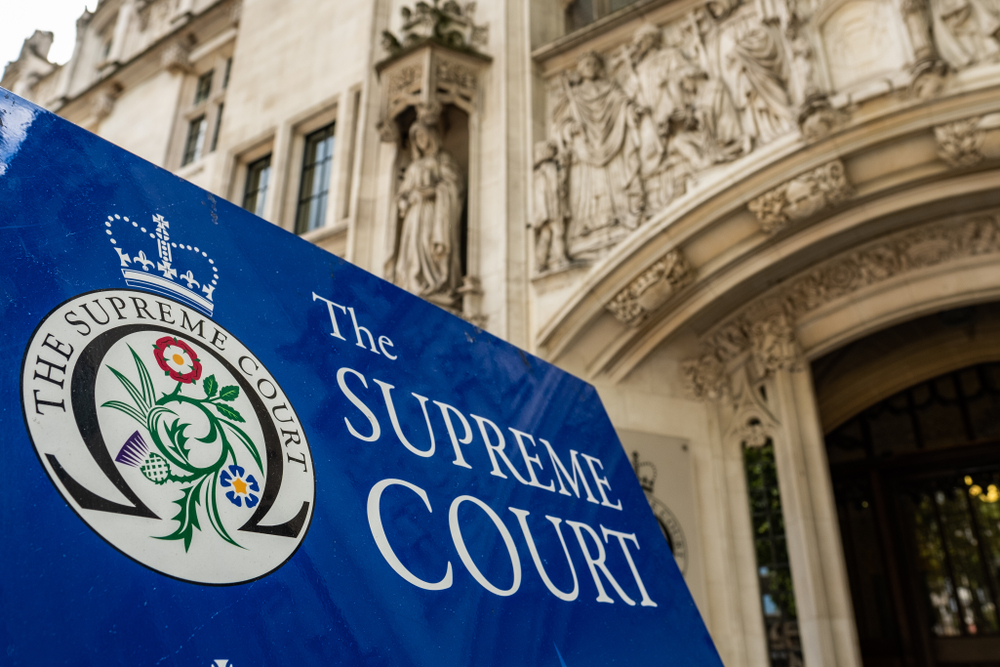Orders for disclosure against a company that was not a party to the main claim are unusual in the Family Division of the High Court.
Our Trust and Probate Litigation team acted in the recent decision of AB v B & Ors [2025] EWHC 1891 (Fam), where such an order was made. Stewarts acted for C in his capacity as representative for the minor children (and unborn beneficiaries) of the deceased, BB, in a claim brought by BB’s wife, AB. Miriam Spencer examines the decision.
Background to the dispute
In 2021, following the death of her husband, AB brought a claim against BB’s estate for provision under the Inheritance (Provision for Family and Dependants) Act 1975 (the “Inheritance Act Claim”). BB’s will provides for his entire estate to be held on discretionary trusts for AB and their children. AB argued, using the “divorce analogy”, that a spouse should not find herself in a worse position following the death of her spouse than she would have if the marriage had ended in divorce. AB claimed, therefore, that she was entitled to outright capital provision from the estate, in addition to the income of the estate.
The court in an Inheritance Act claim is required to take into account the “size and nature of the estate”. By far the largest asset of the estate is a 50% shareholding in Z Limited, a highly valuable company. The other 50% shareholding is held by BB’s relative, YB. The value of BB’s 50% shareholding is relevant to what provision might be made for AB if her claim is successful and what should be retained for the benefit of BB’s children.
The disclosure applications
In 2023, B (the administrator and trustee of BB’s estate) and C made two separate applications for non-party disclosure from Z Limited pursuant to Civil Procedure Rule (“CPR”) 31.17, seeking the documents necessary to enable a proper valuation of Z Limited.
As part of their application, the executors of BB’s estate introduced evidence from a valuation expert (“MN”) who has considerable experience valuing companies in the same field as Z Limited. MN explained why each of the items of disclosure sought was necessary for the purpose of valuing the shares. MN provided information request templates to assist Z Limited with compiling the requested documents, which the judge later acknowledged would obviate the need for disclosure of a significant number of underlying documents.
CPR 31.17(3) provides that a non-party disclosure order may be made only where:
“(a) the documents of which disclosure is sought are likely to support the case of the applicant or adversely affect the case of one of the other parties to the proceedings; and
(b) disclosure is necessary in order to dispose fairly of the claim or save costs.”
If both of these hurdles are surmounted, the court can then exercise its discretion to order the non-party to disclose information, taking into account all relevant circumstances and broader considerations.
YB, on behalf of Z Limited, opposed the applications on the basis that the applications sought disclosure of highly sensitive and confidential information and that Z Limited owed confidentiality duties to third parties. This, it was argued, meant that protecting Z Limited’s confidential information was in the interests of the estate and its beneficiaries, as well as Z Limited.
YB also alleged that while the initial purpose of the valuations was to facilitate the production of a valuation of BB’s shares for the purpose of the claim, the “real” purpose of the applications was seeking to realise the value of BB’s shares.
The outcome
The court disagreed. Sir Nicholas Francis, recently retired (at the time of writing) as a judge of the High Court, held that the “principal purpose” of the non-party disclosure was to arrive at a proper computation of the value of the estate’s shares. Without that proper computation, the court would be unable to fulfil its duty in accordance with the Inheritance Act.
In making an order for disclosure against a person who is not a party, Sir Nicholas was satisfied that the threshold conditions warranting disclosure found in CPR 31.17 had been met. He also found that MN had “attempted to short circuit and accordingly reduce the costs of the disclosure process” by producing the information request templates.
With regard to YB’s confidentiality concerns, Sir Nicholas said: “The Family Division frequently deals with matters of intense confidentiality. For example, the court is often invested with information that could, quite literally, affect the share price of a publicly quoted company. The court frequently has to deal with circumstances where there is an imminent IPO [initial public offering], where disclosure of information could wreck the IPO completely, alternatively artificially inflate or reduce the price of shares.
The court is used to having sensitive information and to dealing with it. It seems to me that it would be plainly wrong to allow the confidentiality issue to interrupt the court’s statutory requirement to carry out a computational enquiry and I am not prepared to allow it to do so in this case.”
Practice points
The judgment provides helpful guidance to practitioners seeking non-party disclosure in the family courts, in particular in cases involving businesses that consider their activities to be highly confidential.
The family court deals with highly confidential cases day in and day out. The fact that a business has concerns about confidentiality is unlikely to be a successful argument in support of a blanket refusal to give disclosure.
Having an expert on hand from an early stage to set out for the court exactly what information is required and why it is required may prove useful. This is particularly so if the expert can produce an information template for the company to use, thereby potentially reducing the costs of the disclosure exercise.
The court may be willing to deal with confidentiality concerns by requiring an expert to give undertakings to permit access only to certain named individuals within the company or by requiring individuals to sign confidentiality agreements.
Stewarts instructed Constance McDonnell KC and Niamh Herrett of Serle Court in this matter.
You can read the full judgment here.
You can find further information regarding our expertise, experience and team on our Trust and Probate page.
If you require assistance from our team, please contact us.
Subscribe – In order to receive our news straight to your inbox, subscribe here. Our newsletters are sent no more than once a month.






